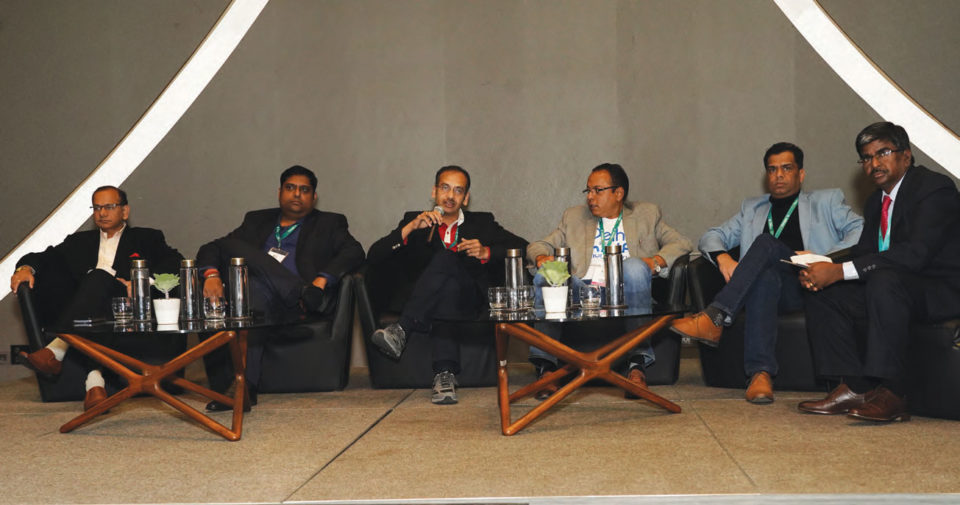In this panel, CIOs from different verticals came together to address the question – With the changing scenario, will the role of CIO continue to be relevant or will it be evolving into something else?
Addressing a recent study by Forbes, Chitranjan Kesari, CEO, Netlynx, moderator for the panel discussion titled ‘Changing Role of CIO – Challenges & Opportunities’, questioned the panellists about the challenges faced by the CIOs and whether given the current scenario of new IT designations coming up, will the role of CIO continue to survive as it is. The panellists were Harish Chandra, CTO, Sarovar Hotels; Anand Kumar Sinha, CIO & Director IT, OCS Group India; CG Prasad, Ex AVP Technology, Next Story Group; Anil Porter, AVP IT & GDS Services, Interglobe Technology Quotient Transportation and Nitin Agarwal, President, Group CIO, CTO, CDO, Edelweiss Financial Services.
Commenting on how the role of the CIO has evolved through the years, CG Prasad, Ex AVP Technology, Next Story Group said, “When I started my career, the terminology for this role was EDP (Electronic Data Processing). Then it evolved into IT (Information Technology). Then followed ICT (Information Communication Technology). Now it is IS (Information Systems). If there is no change in the ecosystem, you will not evolve. So, the role of the CIO will not go away, it will go on evolving.”
According to Nitin Agarwal, President, Group CIO, CTO, CDO, Edelweiss Financial Services, “The challenge that an IT leader is facing today, be it a CIO, CTO or CDO is the sheer pace of change. If you look at the number of new technologies that are being developed and adopted now, they make processes efficient and faster. So, how do you pace yourself with the industry and how do you architect yourself where you are always ready for an opportunity. The world is no longer about saying that I am going to adopt this technology and will capitalize it in the next two years. If you take that long, it will become outdated. That is the biggest challenge – How do you accommodate for the future where you are continuously able to change and adopt the technology innovation?”
Placing the role of the CIO within the ambit of the organization, Anil Porter, AVP IT & GDS Services, Interglobe Technology Quotient Transportation, said, “CIO’s survival would depend on how good they are with adaptability, appliances and governances because that is where they bring in the value of experiences to ensure stability to the organization.”
“First is they have to stay up-to-date with the new technologies like AI, ML, RPA. They should know how to convert business objectives and values into technologies and what is the RoI they bring through the process,” CG Prasad added to the discussion.
Anand Kumar Sinha, CIO & Director IT, OCS Group India addressed the question through the analogy of binoculars. Just like the two lenses of the binoculars form a single vision, the two lenses for the CIO are Business and IT. The expectation from the CIO is that you should look at Business and IT from a single vision. The challenge is about generating business outcome. Because unless and until there is some business outcome, there is no sense in adopting technology. Budget and profitability are major factors here. In terms of data, whatever data you are collecting, whether through traditional or through transformational projects, what are you doing with that data is important. Insights are a challenge.”
“The role of CIO is going to be doubled. Earlier it was about Change, Innovation and Operation. The square will add to it Customer, Insight and Optimization. From sales, to negotiation, to people management, the role of the CIO is diverse and cannot be done away with,” Anand added.
The discussion came to a close with Harish Chandra, CTO, Sarovar Hotels reinforcing that, “The role of CIOs is not going away. They are adding value to other functions, be it Marketing, Sales, Finances or Security. They are supporting function. They are business managers, and they guide different functions to make sure that business value is there.”


